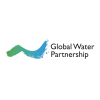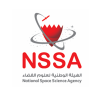Sudan
Alpha 3
SDN
Related Content
Article
A celebration of valuing water for World Water Day 2021
World Water Day, celebrated each year on March 22nd, since 1993, celebrates water and raises awareness of the ongoing global water crisis. The theme this year is Valuing Water. Much more than just price, water has huge value for households, food, culture, health, education, and the environment (UN Water 2021).
Map
Click on any of the highlighted countries to retrieve further information.








